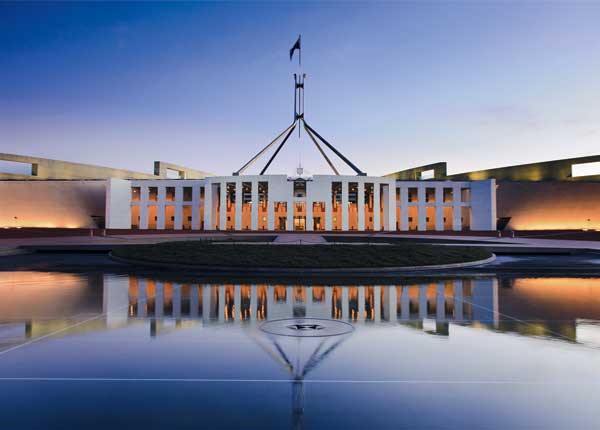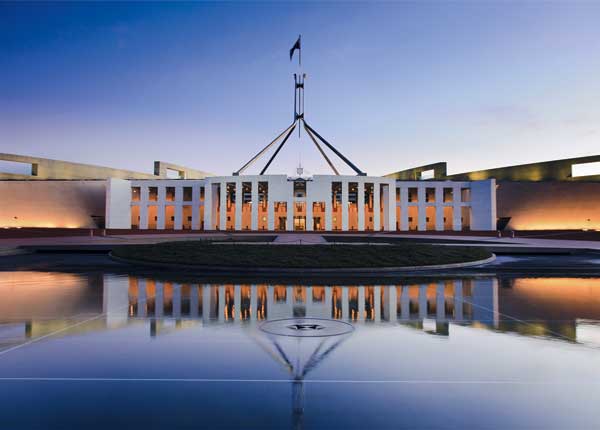
The best way to mitigate big nasty surprises on Budget night is to shovel out the bad news up-front, and the Abbott government and Treasurer Joe Hockey have deployed a front-end-loader to push a pile of sell-offs and office and agency mergers.
As the 50-year anniversary of the creation of the Royal Australian Mint rolls around in 2015, staff at the government’s cash factory will have to face the prospect that they could soon be working for private operators as part of a move to take money from making money.
Estimates of what the government might net from selling-off the Mint’s operations could be are still unclear, however the figure is likely to pale in comparison to estimates of up to $1 billion touted for the sale of the Australian Securities and Investment’s Corporation’s registry functions that now generate income by stinging those seeking information on businesses and corporate entities with fees to access public information.
Although lucrative, sale of ASIC’s registry functions – which are essentially a large business records database – flies in the face of Communications Minister Malcolm Turnbull’s commitment to the principles of Open Data that aims to make public government information available to the private sector for free so that greater innovation in business and new wealth can be generated.
In late March Mr Turnbull hit out at ASIC’s expensive charging regime for document access, branding the fees that the regulator charges as “really regrettable” and saying that “the productivity benefits from making data freely available are so much greater than whatever revenues you can generate from them.”
“I have to say as a matter of principle, I don’t think the government should be charging the public for data,” Mr Turnbull said in March.
If the corporate regulator’s data assets for the burden of paperwork it foists onto business are worth a billion, the same cannot be said for financially failing mail monopoly Australia Post now that the government has telegraphed it has dodged the privatisation bullet.
The retention of Post suggests that Mr Hockey will now try and create a retail network of shared government services centres that will be delivered through Post’s retail footprint, most leading to the closure of many standalone Medicare and Centrelink offices.
That move is also likely to be backed by a push to allow Australia Post to become a quasi-monopoly issuer of secure online credentials for government services either through its challenged Digital Mailbox service or by linking to the my.Gov.au digital identity service.
Australia Post has made no secret it wants to re-enter the bill payments and presentation market as a way to offset losses, with the Digital Mailbox at the front of that push.
But any move to create a new government secure digital identity monopoly to the exclusion of commercial issuers is likely to be opposed by industry – especially banks – who have invested billions over the past decade into making their digital channels secure and easy to use while the government has conspicuously struggled.
Also set to be put on the block for sale is the military’s land-banking play, the Defence Housing Australia (DHA), which not only provides armed forces personnel with accommodation but has been a significant player in the regional property development and investment market for many years.
Aside from DHA being put under the gavel, another potential big mover at Defence’s Russell headquarters in the Budget is the Defence Materiel Organisation which the National Commission of Audit recommended be rolled back into the main Department of Defence.
Also expected to be under scrutiny are Defence’s sprawling back office functions like finance and payroll that have for decades operated as fragmented and siloed operations despite the best efforts of ministers from both sides of politics.
A clear signal that the Abbott government wants the cost of back office administration sharply cut has been given by suggestions that arts and cultural entities like the National Library, National Gallery, National Sound and Film Archives and the National Archives could have a top-down shared services model for imposed on them.
Although often shopped around by big consultancies as an easy way to cut costs and staff, sudden and forced shared services initiatives have an unenviable history of blowing up and causing expensive disruption for their instigators.
One area that technology vendors are watching especially keenly is what will bubble out of the Department of Finance’s investigation into the costs of Enterprise Resource Planning (ERP) software that was announced just a week after the election of the Abbott government in September.
With ‘business as usual’ annual technology costs chewing up somewhere range of between $6 billion to $8billion, many departments are actively pushing to drive down lucrative payments to multinational software companies – which pay negligible tax in Australia – rather than sacrificing staff.
This week Commissioner of Taxation Chris Jordan revealed that his agency is actively scoping to determine how much revenue leakage could be coming from the likes of big multinational technology companies profit shifting overseas.
One option open to the government is to tie new investments in software it buys to conditions that technology suppliers to the public sector must pay local tax on what they earn here rather than profit shifting.
Comment below to have your say on this story.
If you have a news story or tip-off, get in touch at editorial@governmentnews.com.au.
Sign up to the Government News newsletter
Most read
Scathing report finds little has changed at PwC
Inquiry to consider how federal govt can address councils’ sustainability issues
Qld council welcomes progress on massive battery system
‘Local’ procurement turns out not to be so local, committee hears
Another report finds local government falling down on cyber security

